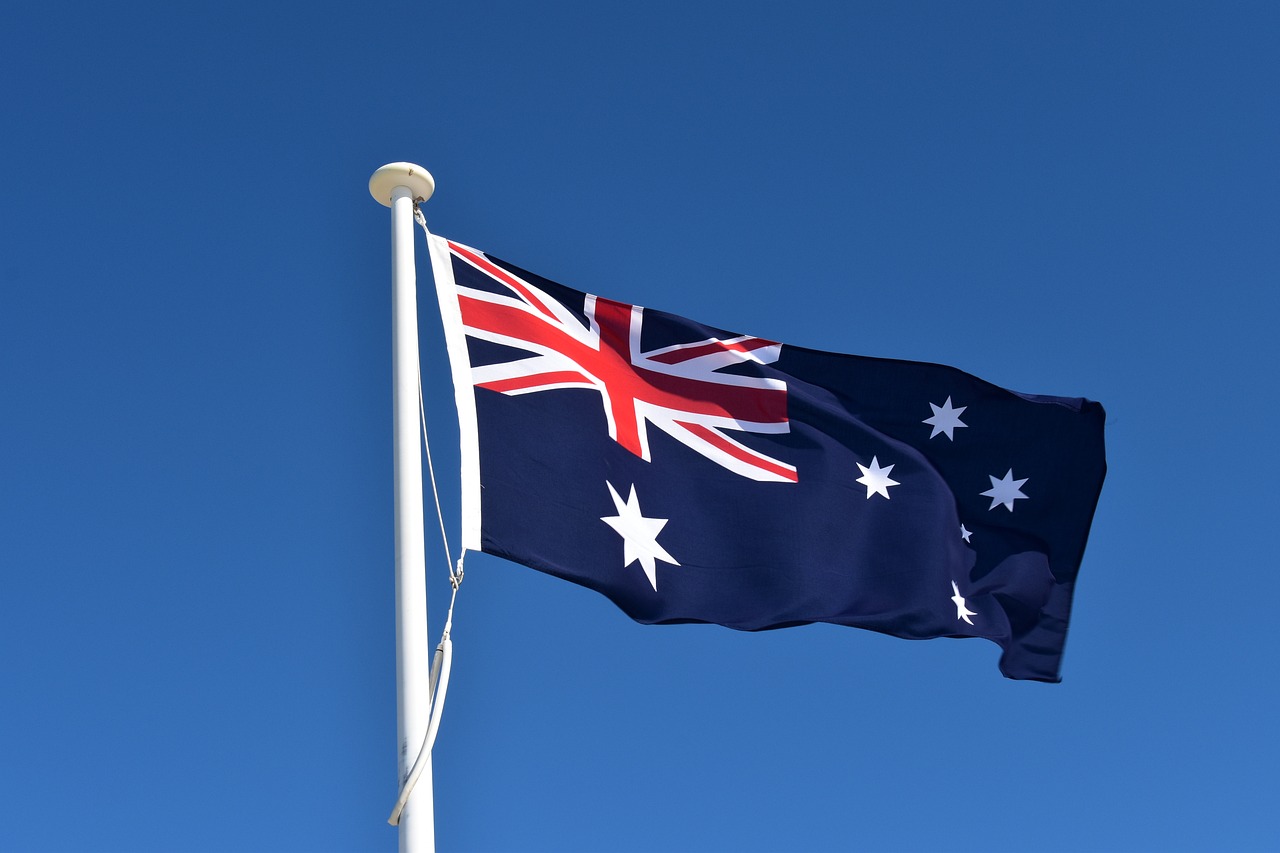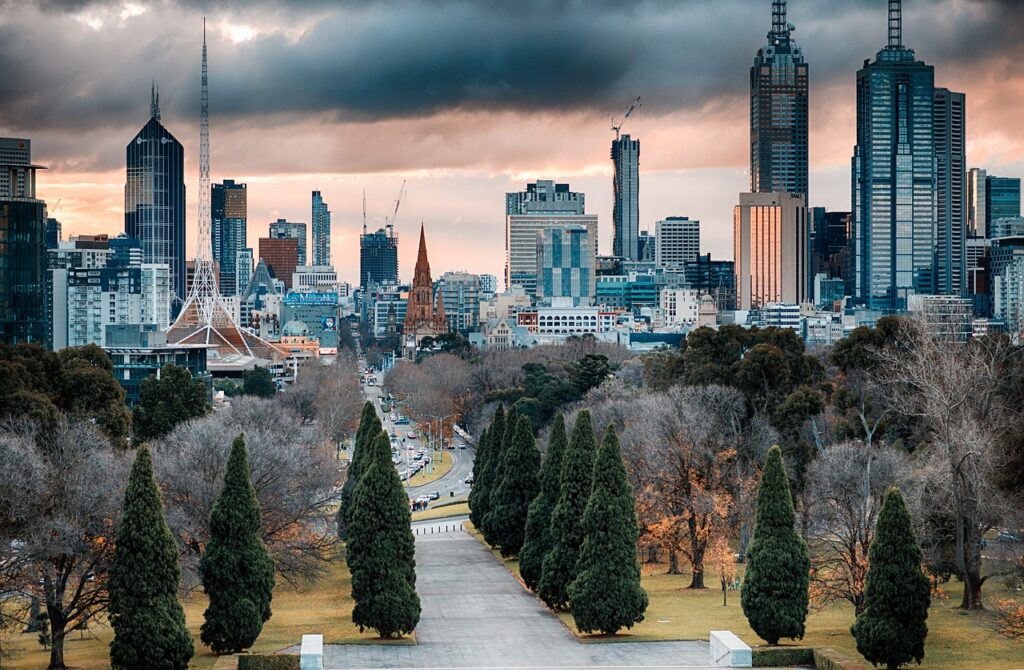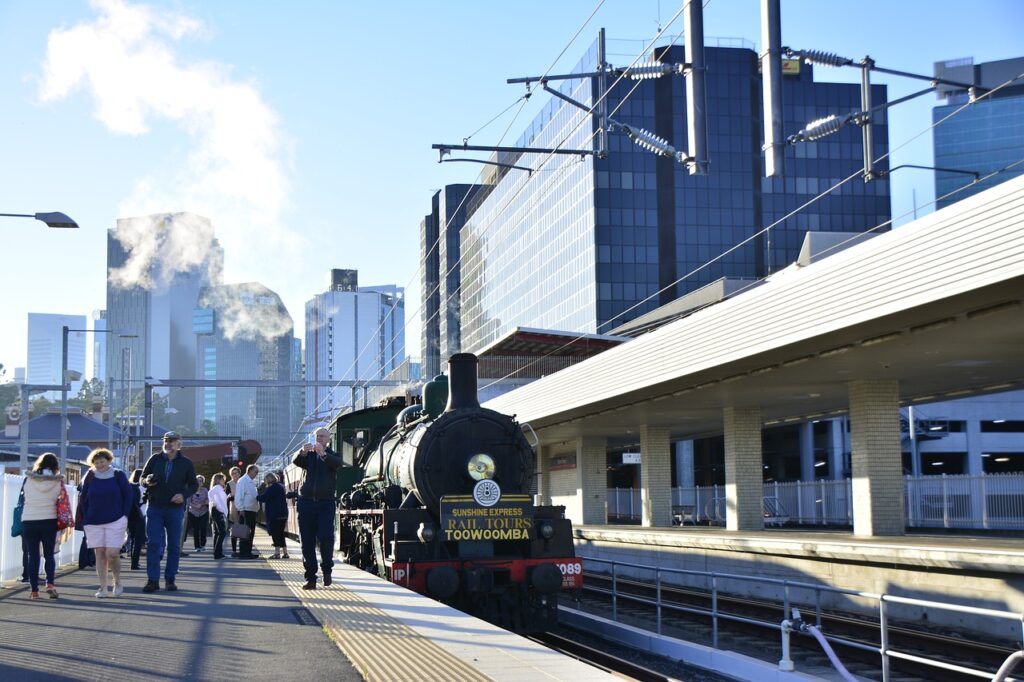Ways To Migrate To Australia
Australia offers a strong economy, high standard of living, diverse culture, and excellent healthcare and education systems. It also has a sunny and warm climate, a diverse range of job opportunities and natural beauty that make it an attractive destination for those looking to migrate.

Why australia?
There are many reasons why people may choose to migrate to Australia. Some of the main reasons include:
Strong economy: Australia has a strong and stable economy, with low unemployment rates and a high standard of living.
High quality of life: Australia is known for its beautiful landscapes, diverse culture, and excellent healthcare and education systems.
Multicultural society: Australia is a culturally diverse society with a large immigrant population. This allows for easy integration and acceptance of people from different backgrounds.
Climate: Australia has a sunny and warm climate in most regions, making it an attractive place to live.
Career opportunities: Australia has a diverse range of industries and job opportunities, making it an attractive destination for skilled workers.
Natural beauty: Australia is home to a wide variety of natural landscapes and wildlife, including beaches, rainforests, and deserts, making it a popular destination for tourists and outdoor enthusiasts.

Different Ways To Migrate
There are several ways to migrate to Australia, depending on your qualifications, skills, and circumstances. Some of the main options include:
-
Skilled Worker Visa: This is a popular option for people with specific skills and qualifications that are in high demand in Australia. The process includes a point-based assessment system that considers factors such as age, language proficiency, work experience, and qualifications.
-
Family Visa: This option is available for people who have a family member in Australia who is a citizen or permanent resident. The process involves sponsorship by the family member and a sponsorship application.
-
Student Visa: This option is available for people who wish to study in Australia. The process involves applying to an educational institution and obtaining a student visa.
-
Business Visa: This option is available for entrepreneurs, investors and business owners who wish to establish or invest in a business in Australia.
-
Working Holiday Visa: This option is available for people aged between 18 and 30 years old, who wish to work and travel in Australia for up to 12 months.
It’s important to note that the Australian immigration process can be complex and vary depending on your personal circumstances, you may want to seek guidance from a migration agent or lawyer.
Skilled Worker Visa
A Skilled Worker visa is a type of visa that allows individuals with specific skills and qualifications to live and work in Australia on a permanent basis. The most common type of skilled worker visa is the subclass 189 visa and the subclass 491 visa.
Eligibility for this visa requires the applicant to score a minimum number of points based on factors such as age, language proficiency, work experience, and qualifications. The applicant also needs to be nominated by an Australian employer or state/territory government agency, and be under the maximum age requirement and pass a skills assessment.
The subclass 189 visa, is a points-tested visa and you can apply for it without sponsorship from an employer or state/territory government.
The subclass 491 visa, is a points-tested visa and you must have a sponsorship from an eligible relative living in a designated area of Australia or from a state or territory government.
The process of applying for a skilled worker visa involves several steps, including:
- Completing an online expression of interest (EOI)
- Being invited to apply for the visa
- Undergoing a skills assessment
- Providing evidence of your qualifications and work experience
- Meeting English language requirements
- Undergoing a medical examination
- Providing police clearance certificates
- Paying the visa application fee
It’s important to note that the process and requirements for a skilled worker visa can change, so it’s a good idea to check the current information on the website of the Department of Home Affairs.
family visa
A Family Visa is a type of visa that allows family members of Australian citizens, permanent residents, or eligible New Zealand citizens to live and work in Australia on a permanent or temporary basis.
The most common types of family visas are:
-
Partner Visa: This type of visa allows the spouse or de facto partner of an Australian citizen, permanent resident, or eligible New Zealand citizen to live and work in Australia. The process involves sponsorship by the Australian partner and a sponsorship application.
-
Parent Visa: This type of visa allows the parents of Australian citizens or permanent residents to live in Australia permanently. There are two types of Parent Visas: contributory and non-contributory. The contributory parent visa requires a higher application fee and a longer waiting period, but it allows the parents to enter Australia on a temporary basis while they wait for the permanent visa to be processed.
-
Child Visa: This type of visa allows the child or adopted child of an Australian citizen, permanent resident, or eligible New Zealand citizen to live and work in Australia.
-
Other Family Visa: This type of visa includes, for example, the Carer Visa, which is for people who need to care for a close relative in Australia who has a medical condition that prevents them from caring for themselves.
The process of applying for a family visa involves several steps, including:
- Completing an online application
- Providing evidence of the relationship between the applicant and the sponsor
- Undergoing a medical examination
- Providing police clearance certificates
- Paying the visa application fee
It’s important to note that the process and requirements for a family visa can change, so it’s a good idea to check the current information on the website of the Department of Home Affairs.
STUDENT VISA
A Student Visa is a type of visa that allows individuals to study in Australia on a temporary basis. The most common type of student visa is the subclass 500 visa.
Eligibility for this visa requires the applicant to be accepted into an Australian educational institution, to have sufficient funds to cover living expenses and tuition fees and to meet the English language requirements.
The process of applying for a student visa involves several steps, including:
- Applying and being accepted into an Australian educational institution
- Completing an online application
- Providing evidence of sufficient funds to cover living expenses and tuition fees
- Undergoing a medical examination
- Providing police clearance certificates
- Paying the visa application fee
It’s important to note that you may also be required to provide a Confirmation of Enrollment (CoE) or a letter of offer from the institution as part of the application process.
Additionally, students will be required to have Overseas Student Health Cover (OSHC) for the duration of their stay in Australia, which will be an additional cost.
It’s important to note that the process and requirements for a student visa can change, so it’s a good idea to check the current information on the website of the Department of Home Affairs.
Business visa
Business Innovation and Investment (Provisional) visa (subclass 188): This type of visa allows business owners and investors to establish or invest in a business in Australia on a provisional basis, with a pathway to permanent residency.
Business Talent (Permanent) visa (subclass 132): This type of visa is for business owners or senior executives with a successful business background who wish to establish a new or develop an existing business in Australia.
Entrepreneur visa: This type of visa is for entrepreneurs who wish to establish, invest in or manage a new or existing business in Australia.
The process of applying for a business visa involves several steps, including:
- Completing an online application
- Providing evidence of business experience and/or investment funds
- Undergoing a medical examination
- Providing police clearance certificates
- Paying the visa application fee
It’s important to note that the process and requirements for a business visa can change, so it’s a good idea to check the current information on the website of the Department of Home Affairs. Also, you may want to seek guidance from a migration agent or lawyer with expertise in business immigration, as the process can be complex.

Working holiday visa
A Working Holiday Visa is a type of visa that allows individuals aged between 18 and 30 years old to live and work in Australia on a temporary basis for up to 12 months. The most common type of working holiday visa is the subclass 417 visa.
Eligibility for this visa requires the applicant to be a citizen of a country that has a reciprocal working holiday agreement with Australia, have a valid passport, and not have dependent children.
The process of applying for a working holiday visa involves several steps, including:
- Completing an online application
- Providing a valid passport
- Paying the visa application fee
Once the visa is granted, the holder can enter Australia at any time within 12 months from the date the visa is granted. After arriving in Australia, the holder must register with the Australian Taxation Office (ATO) to obtain a Tax File Number (TFN) and provide it to their employer before starting work.
It’s important to note that the working holiday visa holder can only work for a maximum of 6 months with each employer and also, they can study for up to 4 months.
It’s important to note that the process and requirements for a working holiday visa can change, so it’s a good idea to check the current information on the website of the Department of Home Affairs.

What else can Renee Immigration do for you?
- Tours And Travel To Australia
- Visa Assistance for Australia
- Study Visa for Australia
- Permanent Residency for Australia
Trusted worldwide and used in over 100+ countries.
“Hiring new employees is a long process, and you need a trusted friend to help you with that. Renee Immigration is an amazing HR management platform that will help you from the get-go.”
Siddharth sharma
© copyright Renee Immigration
